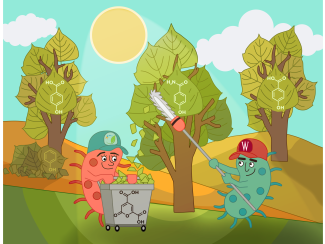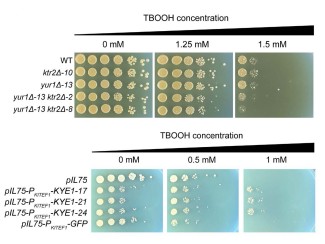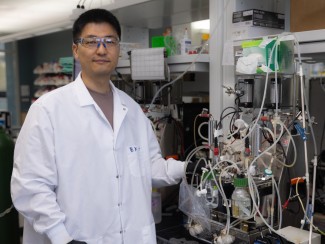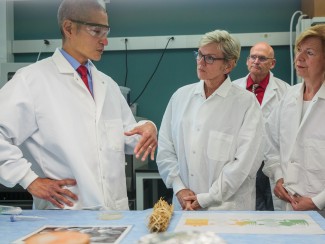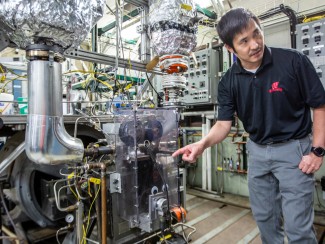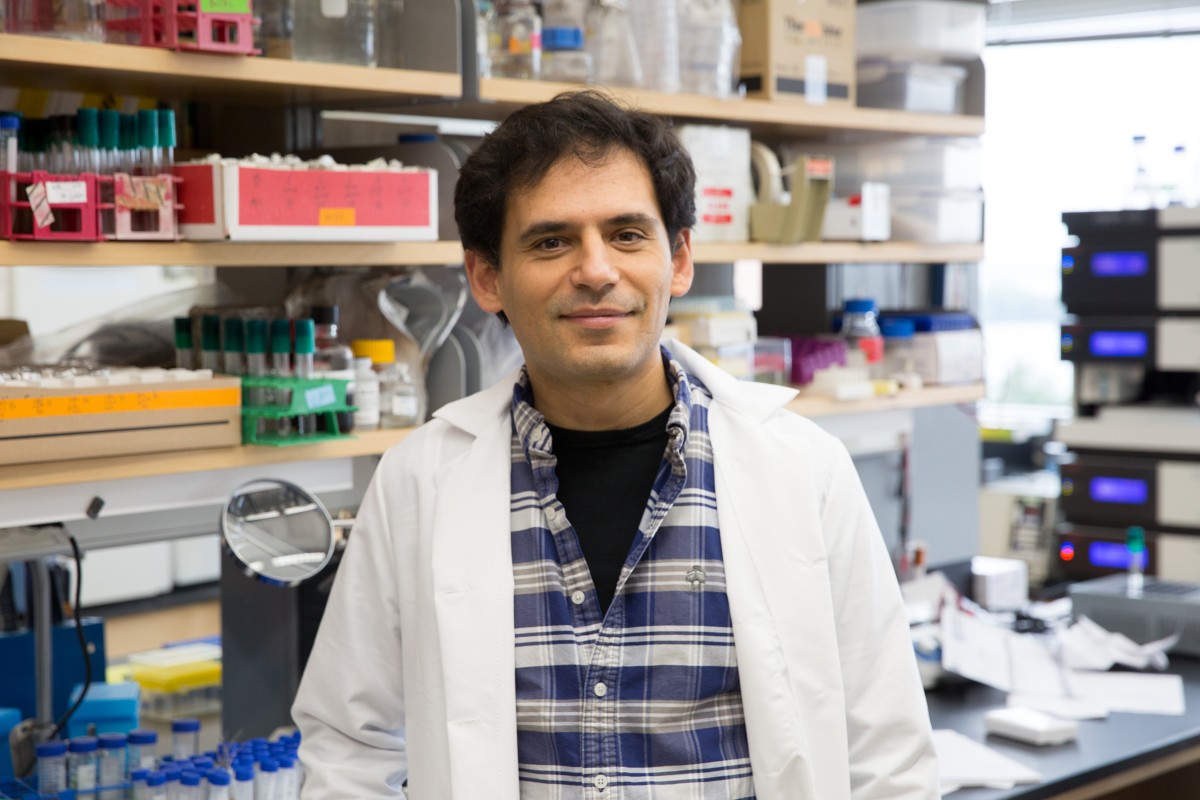
A prestigious early-career award from the U.S. Department of Energy will help a University of Wisconsin–Madison researcher and his team create new modeling tools that will help optimize the microbial production of biofuels and bioproducts.
Daniel Amador-Noguez, an assistant professor of bacteriology and researcher at the Great Lakes Bioenergy Research Center (GLBRC), has received a 2018 Early Career Research Program Grant from the U.S. Department of Energy’s Office of Science. He is among 84 young faculty nationwide to receive the award, designed to bolster the nation's scientific workforce by providing support to exceptional researchers during the crucial early career years.
The five-year, $750,000 grant will support Amador-Noguez and his team in their effort to create new tools that will aid the metabolic engineering of microbes for the production of biofuels and bioproducts.
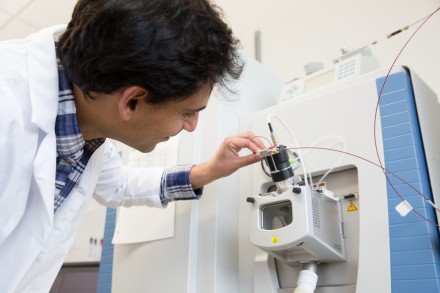
The biological production of biofuels and high-value chemicals from plant biomass is one of the most promising strategies for the generation of these essential commodities. Doing it efficiently and sustainably, however, will require detailed knowledge of the many diverse metabolic pathways that exist in microbes and how they interact.
Recent breakthroughs in genome editing and metabolic engineering are expected to expand the range of microorganisms and synthesis routes—the chemical reactions microbes use to create these fuels and chemicals—that can be utilized in the biofuels industry. This rapid expanse has created an increasing need for new tools that can characterize the products that new and existing microbes can create, as well as improve the efficiency of the processes they use to create them.
With this new grant, Amador-Noguez and his team will aim to fill that need by developing high-throughput tools that can analyze a wide range of organisms and inform future research.
“We’ve made great advances in microbial engineering over the past few years, but there is still huge potential to improve,” says Amador-Noguez. “We are hoping that these new tools will help spark further understanding and innovation.”
By analyzing how energy is transferred and transformed within microbes’ metabolic networks, these new tools could help identify bottlenecks in the synthesis routes used to create desirable products, predicting the most efficient routes for product biosynthesis while ruling out unfavorable ones.
We are hoping that these new tools will help spark further understanding and innovation.
Daniel Amador-Noguez
The ability to identify these key bottlenecks will help inform future pathway design and metabolic engineering in microbes, clearing the way for more efficient production of biofuels and bioproducts.
The Early Career Research Program, now in its ninth year, funds researchers in universities and DOE national laboratories to support individual research programs of outstanding scientists early in their careers. To be eligible, researchers must have received a Ph.D. within the past 10 years and be an untenured, tenure-track assistant or associate professor at a U.S. academic institution or a full-time employee at a DOE national laboratory. A list of the 84 awardees, their institutions, and titles of research projects can be found on the DOE Early Career Research Program webpage here.

